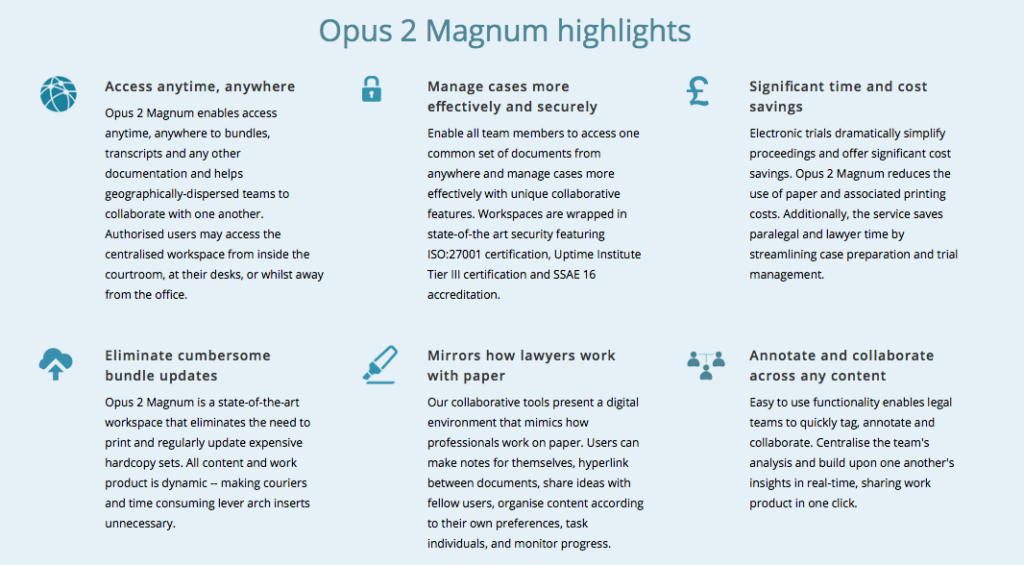
International law firm Berwin Leighton Paisner (BLP) has chosen litigation tech company Opus 2‘s electronic trial platform, Magnum.
Magnum has several uses, but its key benefit is that it allows parties involved in litigation to work together seamlessly, annotate documents, create hyperlinks between them and operate in a gated wholly digital space, which removes the need for huge paper bundles.
While moving from paper to a digital world may seem an obvious thing to do for efficiency’s sake, the courts and the realm of barristers, at least in the UK, have not been the easiest of groups to convert to a digital ecosystem.
That said, its development is seen as very much in step with ongoing efforts in the UK to digitise the world of court rooms. And, while Magnum is not an NLP-led platform, once the industry has litigation lawyers working primarily off digital sets of documents then it opens up interesting possibilities to use machine learning technology to improve the lives of solicitors, barristers and judges involved in disputes and to deliver new and valuable legal and/or economic insights.
London-based BLP said that it ‘will use the cloud-based case management system and collaboration tools on a unilateral basis, to facilitate collaborative team working throughout the entire lifecycle of a dispute’.
BLP is currently in long-running merger talks with US law firm Bryan Cave, which is also well-known for its strong focus on leveraging legal tech.
The partnership with Opus 2 was led by Nick Pryor, Head of LCR Client Technology.
He said: ‘BLP recognises the efficiency that paperless case management systems provide for litigators. By leveraging the Magnum platform we can improve team collaboration, reduce the burden of email, and empower our lawyers to work more flexibly and efficiently.’
Oliver McClintock, Chief Commercial Officer at Opus 2, added: ‘We are delighted to have entered into a strategic relationship with BLP, ….we are now seeing a surge in demand for Magnum from an early stage in the dispute resolution lifecycle. We expect this early use of the system to grow as law firms increasingly look to innovate and become more efficient through the use of collaborative, cloud-based technology.’
